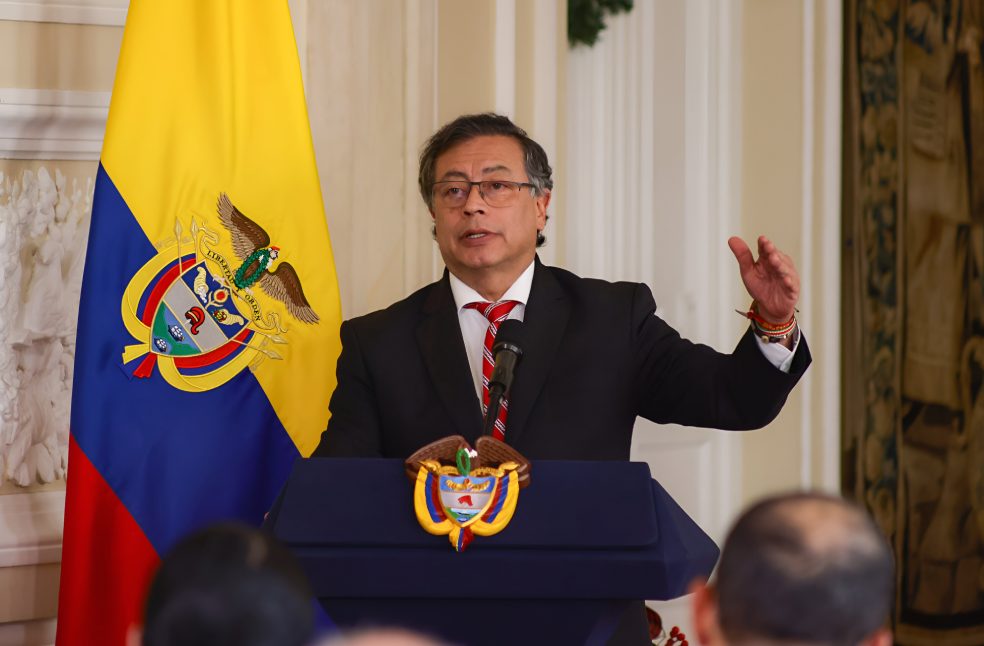United States: US President Donald Trump has announced 25 percent tariffs on all goods imported from Colombia after its president, Gustavo Petro, barred two US military planes from taking deported migrants from landing in the country. Trump further cautioned that these tariffs would increase to 50 percent within a week if Colombia does not comply with US demands.
Colombian President Petro responded defiantly, imposing reciprocal 25 percent tariffs on US imports and criticising Trump’s handling of migrants. Petro emphasised his commitment to ensuring deportees return “with dignity and respect” and even delivered his presidential plane for their transportation.
US officials indicated that two military planes carrying deportees from San Diego were set to land in Colombia but were denied entry. Trump reacted swiftly, revealing not only tariffs but also visa revocations and travel bans targeting Colombian officials and their allies. He explained the steps as part of a broader strategy to enforce US immigration laws and condemned the Colombian government for failing to meet its obligations.
Colombia’s response underscored its frustration with the US approach. Petro claimed over 15,000 Americans reside in Colombia illegally, though this figure remains unverified. He also aimed at Trump’s policies, accusing him of arrogance and economic aggression.

The US is a key market for Colombian exports, including coffee, bananas, avocados, and flowers. Tariffs could guide to higher costs for American consumers and force importers to seek alternative suppliers, potentially harming Colombian producers.
Diplomatic relations between the two nations are now at a breaking point, with Petro declaring Colombia open to global collaborations and vowing to resist US pressure. This standoff comes as the Trump administration doubles down on immigration enforcement, reintroducing measures like the “Remain in Mexico” policy and deploying the military to the US-Mexico border.
Trump’s approach has drawn criticism from international partners and human rights advocates alike. Vice President JD Vance supported the administration’s hardline stance, stating that, “Our border is closed,” while emphasising the need for law enforcement against violent criminals.
As the feud boosts, the prospects for cooperation between the US and Colombia on migration and border security appear increasingly bleak. Experts warn that this separation could complicate efforts to address the flow of migrants travelling north through South America.
The developing trade and diplomatic dispute underscores the challenges of balancing national security, migration, and international relations in an era of rising global pressures.



